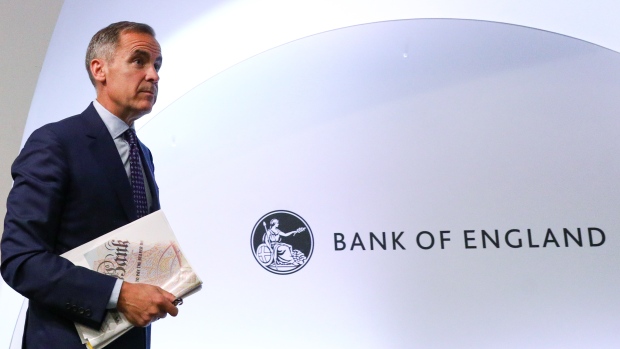Sep 4, 2018
Carney says he's willing to stay at Bank of England for Brexit continuity
, Bloomberg News

Bank of England Governor Mark Carney opened the door to extending his tenure at the central bank to help the U.K.’s transition out of the European Union.
“Even though I have already agreed to extend my time to support a smooth Brexit, I am willing to do whatever else I can in order to promote both a smooth Brexit and an effective transition at the Bank of England,” he told lawmakers when asked whether he would stay on as governor past June 2019, when he is currently due to leave.
Speculation about Carney’s future ramped up last week after the Evening Standard newspaper reported that he had been approached to extend his term by an additional year to provide further continuity after Britain leaves the European Union in March.
“The Chancellor and I have discussed this, I would expect an announcement to be made in due course,” he said Tuesday. “I made them aware of my willingness to do what I can to support the process, and I leave the decision of the government for the government.”
A Treasury official said that an announcement on Carney’s future will be made in “due course.”
Carney’s tenure has been unorthodox from the start. The former Bank of Canada chief was appointed to the role in late 2012 after previously saying he wasn’t interested in the job, but initially agreed to serve just five years of what is usually an eight-year term.
Following Britain’s 2016 Brexit vote, he agreed to remain in place an additional year to the end of June 2019, to help steer the BOE through the negotiations.
“I certainly can’t make announcements on behalf of the government but I’ll do whatever I can to support this process,” Carney said. “I fully recognize that during this critical period, it’s important that everyone does everything they can to help with the transition of exiting the European Union.”
